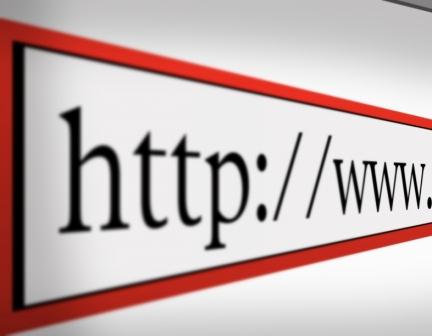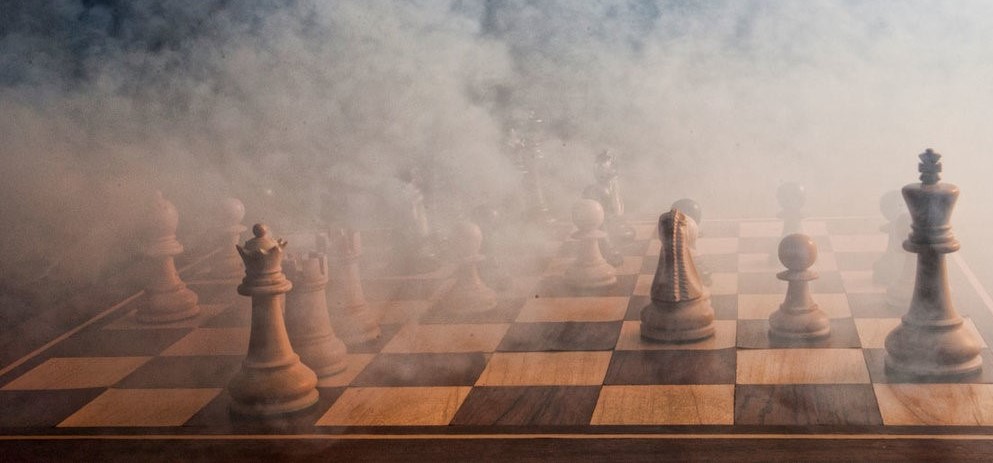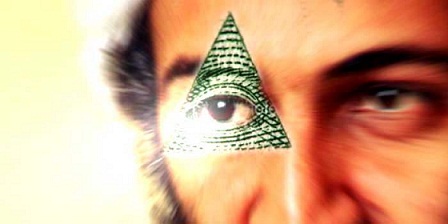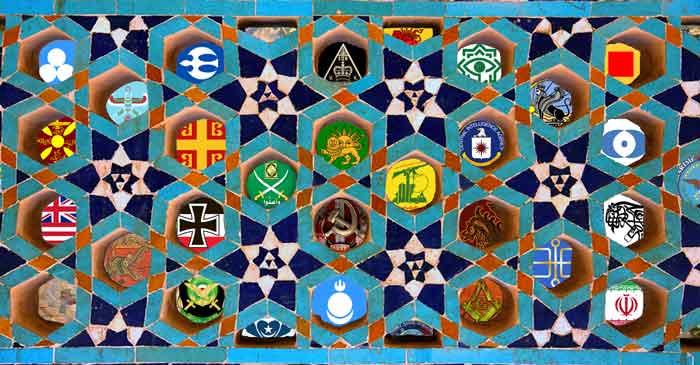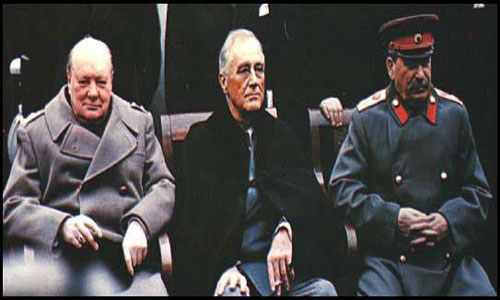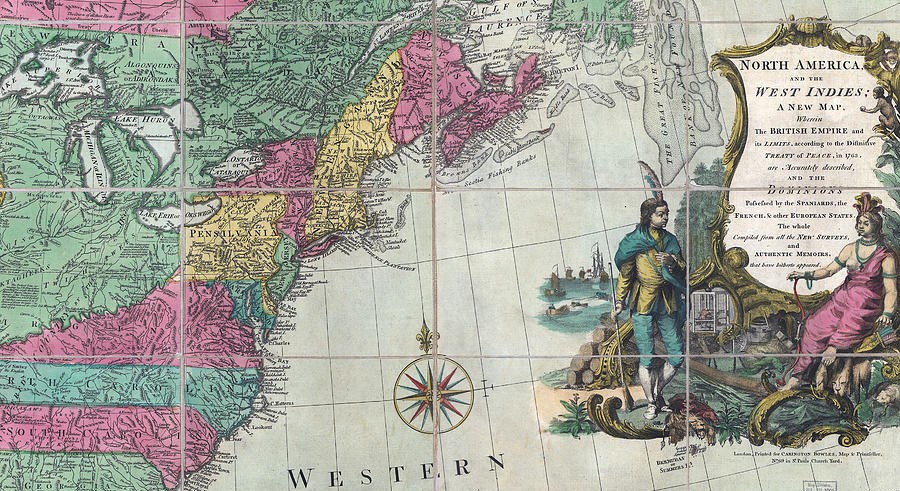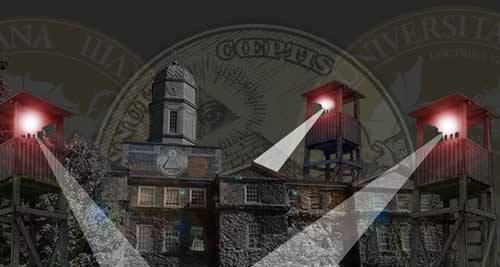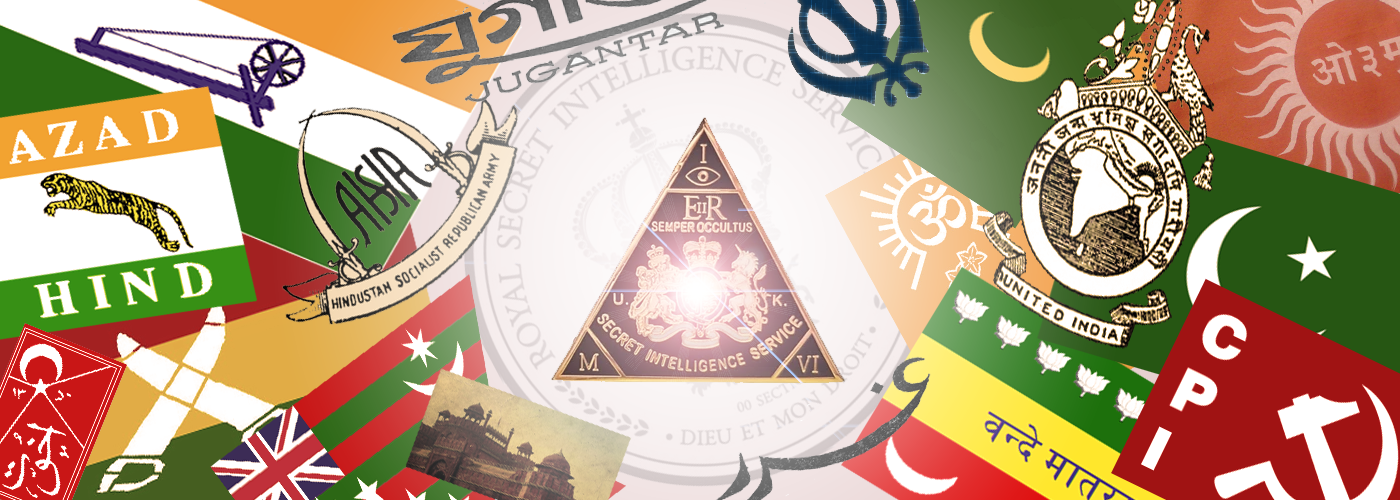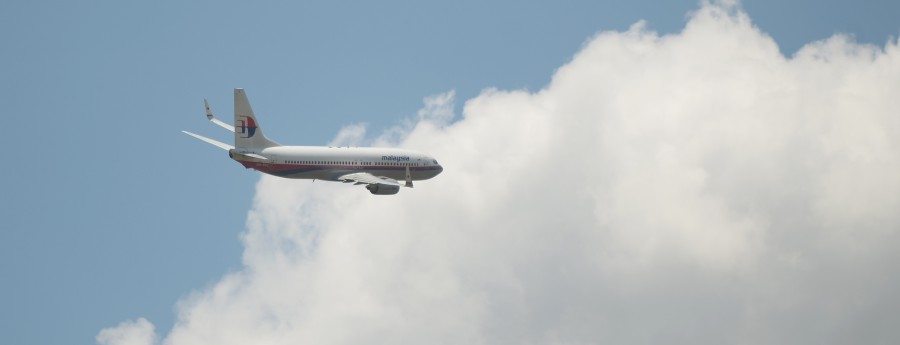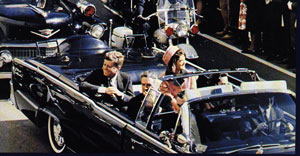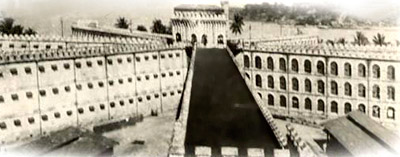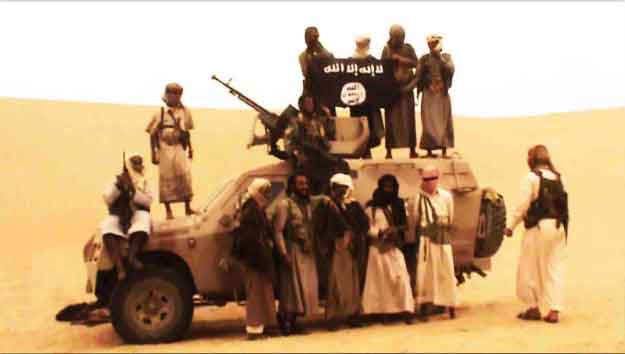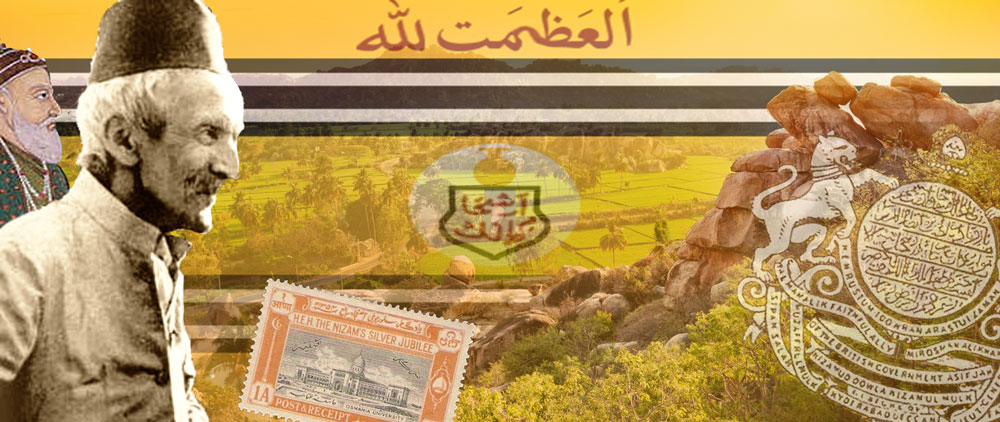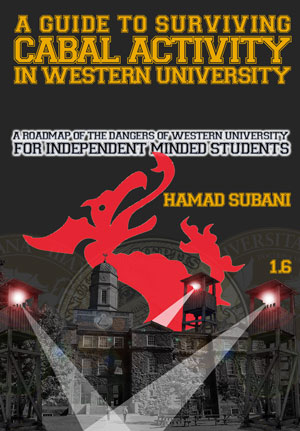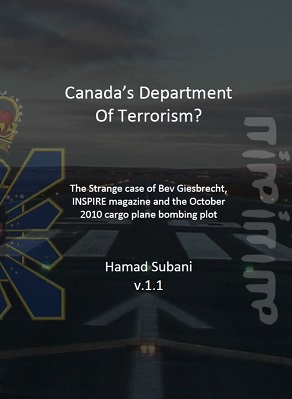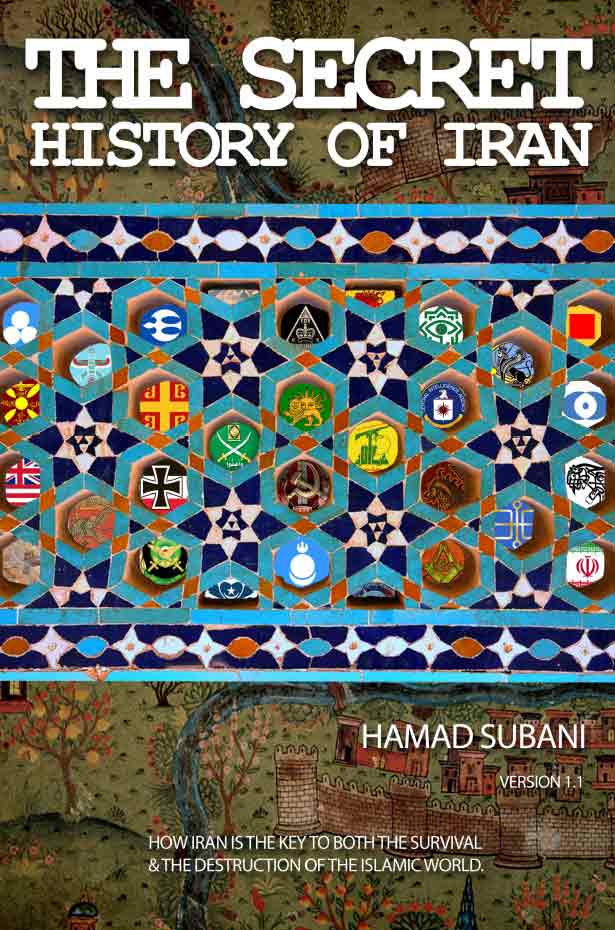The Islamic Prohibition on Indirect Taxes
The following is a transcript of an Urdu interview with Pakistani Economist Munir Ahmad, which was conducted by SpecialTV Pakistan in January of 2025. Munir Ahmed and his ideas have been covered earlier on this website. I found it necessary to translate and transcribe this entire interview, as there is sadly, very little debate on the question of indirect taxes and their legitimacy. My commentary can be found at the end.
Indirect taxes refer to those sneaky taxes which are literally everywhere, and which apply to all citizens regardless of income, such as General Sales Tax (GST), Harmonized Sales Tax (HST), Value-Added Tax (VAT), Health Tax, Tax-Deducted-at-Source (TDS), Carbon Tax, Environmental Fees etc. Americans in five states may rejoice because they are still safe from many of them. To quote,
The U.S. does not have a value-added tax. It’s the only major economy with a retail sales and use tax. Unlike VAT, which is controlled at the federal level, U.S. sales tax is dictated by state and local governments. All but five states* levy a state sales tax, and 38 states allow local sales taxes.
*Alaska, Delaware, Montana, New Hampshire, and Oregon.

In early 2025, residents of California (the most expensive gas state in USA) paid US$ 4.65/gallon or US$ 1.23/litre of petrol. Of that, the California state excise tax is currently 59.6 cents per gallon and the federal excise tax is currently 18.4 cents per gallon. The taxes are roughly 17% of the price of petrol.

In early 2025, residents of Vishakapatnam India paid US$ 4.73/gallon or US$ 1.25/litre of petrol. Of that, 31% was VAT, plus an addition to a 4 Rupees/litre, plus a VAT of 1 Rupee/litre as a “Road Development Tax.” The taxes are roughly 43% of the price of petrol! What a surprise to see India beat California! Now you know where their poverty (largely) comes from.

In early 2025, residents of the Canadian province of Newfoundland and Labrador paid $US 4.88/gallon or $US1.29/litre of petrol. Of that, roughly 58% are a slew of taxes (Federal and Provincial State Taxes, Federal and Provincial Excise Taxes, Transit Tax, Carbon Tax and so on).

In early 2025, residents of Karachi, Pakistan paid $US 3.44/gallon or $US 0.91/litre of petrol. There is no GST on petrol in Pakistan, but the IMF is insisting for it. The recent administration has sneakily introduced a “Petroleum Development Levy (PDL)” which is roughly 27% of the cost of petrol.

In early 2025, residents of Dahran, Saudia Arabia paid $US 2.34/gallon or $US0.62/litre of petrol. Of that, roughly 15% goes to taxes. The irony is that the upper countries frequently import crude oil from Saudi Arabia at a far lesser rate, and then pad it with their very own taxes!

In early 2025, residents of Tehran, Iran paid $US 0.11/gallon or $US 0.029/litre of petrol. Their government heavily subsidizes fuel to promote industry, which has nosedived because of sanctions.
Start of Interview…..
[Islamic prayer in Arabic]
Interviewer [Shahzad Shaukat]: Assalamu Alaikum viewers. This is Shahzad Shaukat with our program Industry and Economy. We Pakistanis welcome all those efforts which will make us succeed, which will make our economy and industry develop. The bottom-line is, how should our industry develop, and how should our economy grow. Islam is a complete message. The message given by the Prophet of Islamﷺ also includes a taxation system. On one side we have a Capitalist Economy. On another side we have Socialism. On yet another side we have an Islamic Economic System. We need to take about this in simple terms. Some friends who have huge personal assets of their own, who control money, they push their own policies, they conduct capitalist investments to influence the Government, to secure their position and their industries, so that Investment Capitalists similar to them will only benefit. On the other side we have Socialism, where the Government claims that they will do the investment and you just work like slaves, on our terms. The [Socialist] Government will do the entire investment, as all money belongs to them. And there is no balance here either. In Pakistan, the IMF has imposed a taxation system on us. Once upon a time the net income of Pakistan’s Government was 3000 billion Rupees. Today, after Provincial shares [of net income] are subtracted, the net income [from taxes] of Pakistan’s Government is 10,700,000,000,000 Pakistani Rupees [US$38.2 billion]. And in the coming years, it will keep ballooning, even after subtraction of Provincial shares. But the economy is not growing as much as the taxes are increasing. Even with billions of Rupees of taxes, and billions of Rupees of interest that we have to pay, and the FDR [Federal Board of Revenue Pakistan] is collecting it from us every year…..in today’s program we will debate with our guest on what an Islamic Taxation System is, what a Taxation System of a Capitalist Economy is like, what is the reality of the Taxation System in present-day Pakistan, what kind of taxes are prohibited in Islam. The economic system of our times, which we refer to as a “Capitalist Economy,” allows a rich man to continue becoming exceedingly rich, but the poor become poorer. What are those scenarios in which one man, who is poor, but still paying taxes…..and what does Islam say about this? Today our guest is Mr. Mohammed Munir Ahmad, Chief Manager, State Bank of Pakistan (Lahore Branch), author of 7th Century Madina Economics…..Salamu Alaikum.
Munir Ahmed: Walaikum Assalam.
Shahzad Shaukat: I wish our intro wasn’t so complicated but it became as such. The thing is, today, in the society we are living, indirect taxes are everywhere. FDR is hoping that even if a beggar is recieving something, he should pay taxes on it. Today we are facing a big problem….I will give an example, a new policy has just come, that if an FDR employee passes an order, and if a taxpayer faces a liability of 1 billion Rupees, even by mistake, then it is mandatory that he at first deposit 30% of it in the Government Treasury and then he can appeal. Otherwise, he can’t even appeal! Industrialists are very worried. Please explain to me….Islam gives a complete message. So is Islam and today’s Pakistan…or today’s Taxation system of Pakistan….what is the comparison between the two?
Munir Ahmed: Bismillah Hirrahman Nirrahim. You have raised a great issue. Today what we see, what we see on television, on another program…it is always the same topic. The life of the poor person has become difficult. It is hard for him to stay alive because of these taxes. The Government says….IMF says we must generate revenue. Its a strange debate. And all the economists in our nation refer to the Taxation system of Capitalist Economies to try to salvage our problems. Nobody considers our religion Islam….Quran says that Today we have perfected your religion for you. Where is this religion’s Economic System? And every Economic System has a Taxation System. Thanks to Allah I am working on this question. And this book of mine you mentioned, 7th Century Madina Economics, discusses a complete Taxation System. And it is so simple, it consists of only and only, two taxes! Now today you look around and see so many taxes in Pakistan. I will weigh on on this a bit. In 622 AD, the Prophet of Islamﷺ migrated to Medina. There he founded a society, a system, the Republic of Medina. He first gave it a Political System. He gave it a Faith. He gave it community and brotherhood. He then gave it an Economic System, a complete Economic System. This wasn’t some verbiage. This wasn’t some religious claim. It is a fact, an established fact that the Jews operated four markets in Medina. Muslims were not in a position to establish their own market. The migrants from Mecca came to Medina leaving all their belongings behind. But the Prophet of Islamﷺ was in such a hurry….that he said that a big tent be set up, and a market be established there! Look at it. There are four markets over there, fully functioning and operated by the Jews. And heﷺ builds another one underneath a tent. And a revolutionary feature of this new market is that before, there was a tax on trade. Not just in the Arab world, but even among the two big superpowers of that time, Persia and Rome, taxed trade. There was also tax on trade in Mecca and Medina [In pre-Islamic times]. The first thing heﷺ did when he made the new market was announce that from now onwards, there would be no tax on any trade. All four markets of the Jews taxed trade. So now all the traders who were settled in the Jewish markets moved to this new one. The big question is why the Prophet of Islamﷺ put an end to tax on trade.
Shahzad Shaukat: I was also approaching this. When the Prophet of Islamﷺ migrated to Medina, I wonder what injustice he perceived in those four Jewish markets, or what fraud or inequity he witnessed in them?
Munir Ahmed: When we study our religion, specifically our book, the Quran, what is the Quran? In simple words, it is a theory for living life. Nowadays knowledge is so much, we talk about theory and practice. First comes theory and then practice. Quran outlined a theory for living a successful life. And the Prophet of Islamﷺ gave a practical example of implementing that theory. The Quran refers to two taxes. One is Ushr. And Quran commands that whenever you cut a crop, give away that specified share. The other tax is Zakat. The first tax (Ushr) is on income. You did some work, or some economic activity which generated some income. For example, a farmer grew crops, and when he harvested his crops, he generated an income. So this first tax, Ushr is on income. You have to pay a tax on this income. And Allah commands that this be paid immediately at harvest. If you made four harvests in a year, then you are expected to pay at each of these four harvests. And there are three slabs for this tax. If you arranged for irrigating the crops on your own, the Ushr rate is 5%. If the Government arranges for water or if you are next to a stream, then the Ushr rate is 10%. There is another interesting fact. If some kind of treasure is discovered on your land, 20% of it will taxed by the Government, which we refer to as Ushr. This is the first tax [of Islam] and this is pure economics. You did some work and you generated some income. And you are expected to fulfill the obligation towards the State, towards Allah, and this is a flat rate of 10%.
Shahzad Shaukat: Can you please stop here. Today I am a Pakistani. Suppose I sell these eye glasses, I have to collect 18% Sales Tax and submit it to the Government. Regardless of whether I experienced profit or loss. To the person I sold them for one hundred Rupees, I have to make a deduction at source of 10%. I am not contesting as to whether I experienced profit or loss. But if I did not report it to the Government, they will stick such penalties that will that they will seize my business assets and equity. In Madina Economics, the Prophet of Islamﷺ stepped aside from the heavily-taxed markets of the Jews and built for us Muslims a new tent, a new market, with tax exemption.
Munir Ahmed: Tax Free.
Shahzad Shaukat: Heﷺ gave the exemptions and made the market tax free. Which ended exploitation. Now the two more things you talked about…..tax can only occur where there is an actual income generated.
Munir Ahmed: Exactly. That is why it is called Income Tax. Or tax on Income in this system.
Shahzad Shaukat: But now we have no income, yet the FBR is demanding taxes!
Munir Ahmed: I am working on this issue. In the West, they refer to it as VAT. Value-Added Tax, on every purchase. It is applicable if you purchase anything. Now if you look at its theory, its logic…..in the first instance, there is tax on income. In Islam it is Ushr, in Capitalism it is Income Tax. But when you buy something, it reduces your income.
Shahzad Shaukat: Yes.
Munir Ahmed: As you have said, they don’t take into consideration whether you made a loss or a gain. When I visited a bazaar to buy an item, this purchase actually reduced my income, because of that purchase. If I purchased an item for 20,000 Rupees, then my income is actually reduced by 20,000 Rupees. So this tax [VAT] is ironically, on reducing your income! That is why the Prophet of Islamﷺ abolished Sales Tax, GST, or as it is known abroad, VAT. Because these taxes were a form of exploitation. Because you made no income when you made these purchases. Heﷺ mentioned that the trader who does business throughout the year, he makes savings. When you look at it, the logic of this Taxation System of Islam is so beautiful. You pay tax immediately on income when it occurs. You make a gainful harvest, you pay tax immediately.
Shahzad Shaukat: And you don’t want till the end of the year [to file taxes].
Munir Ahmed: And you will pay tax any time income has occurred. but if you consider a typical industry [in a Capitalist System] where production is taking place every month, they have to pay taxes every month. If they are doing production daily, they have to pay taxes daily. Some of the same things can be found in a Capitalist System. For example, in the hotel industry, there are are Excise taxes. These are daily. If people come to the hotel to eat four times a day, they pay tax on each of these four occasions, regardless of whether it is morning, noon or evening. Islam has a rationale…..when I work, I sometimes take assistance from AI. Now VAT is an established tax in the West. I asked AI if a beggar who spends all his day begging in the streets of New York eats a burger at the end of his day, would he also have to pay VAT on the burger? [And AI says Yes]. Even the beggar who is struggling to get by is paying taxes on food he purchases. Capitalism is a system for rich people. And therefore it’s Taxation System is also geared towards aiding the rich. A poor man makes several purchases in a day, sometimes milk for children, sometimes flour, sometimes ghee. And he is paying taxes on every single one of these purchases…look at petrol. Consider a Sugar Mill. It has an owner. And employs a security guard. Both are paying the same price for petrol [Sales taxes included]. But do they both have the same income capacity? Islam’s contribution to Economics…..we read religion differently, and we have not bothered to survey it properly, especially the life of the Prophet of Islamﷺ and his ten years in Medina. There was no tax on trade. There was no tax on purchases. And there is a Hadith [saying of the Prophet]. Its says: The one who imposes taxes, even the scent of heaven will never reach him…..he will never go to heaven.
“The [unjust] tax collector will not enter Paradise.”
A quote attributed to the Prophet of Islamﷺ, reported by ‘Uqbah ibn ‘Amir .
Source: Sunan Abī Dāwūd 2937
Grade: Sahih (authentic) according to Al-Suyuti
عَنْ عُقْبَةَ بْنِ عَامِرٍ عَنْ رَسُولِ اللَّهِ صَلَّى اللَّهُ عَلَيْهِ وَسَلَّمَ قَالَ لَا يَدْخُلُ الْجَنَّةَ صَاحِبُ مَكْسٍ
2937 سنن أبي داود كتاب الخراج والإمارة والفيء باب في السعاية على الصدقة
9947 المحدث السيوطي خلاصة حكم المحدث صحيح في الجامع الصغير
I sum it up as follows: GST, Sales Tax is not valid in Islam.
And what we have here in Pakistan (which I shall talk about in further detail), More than 50% of taxes are indirect! In Islam, no tax can be indirect. Ushr is direct, and so is Zakat. There is a need to study this.
More than 50% of taxes are indirect in Pakistan! In Islam, no tax can be indirect. Ushr is direct, and so is Zakat.
Munir Ahmed.
Shahzad Shaukat: There will be another program of ours featuring a senior advocate of the Supreme Court [of Pakistan]. The question we will be discussing is the authority of the Federal Sharia Court….the Constitution is demanding from the Federal Sharia court……if any law, or any policy is against the teachings of Islam then it is void. It can be declared illegal and will not be implemented. So what I have understood today from your research, it sounded very logical, I myself am a Chartered Accountant, a practitioner of the Tax System…..so let me summarize your research in a different manner. If I went and bought something that was for say One hundred Rupees, regardless of whether it was for consumption or whether it was to be invested into production at a factory, when I got it for One hundred and twenty Rupees instead [after taxes] then my cost has increased.
Munir Ahmed: Yes the cost has increased the very first day. On just one purchase.
Shahzad Shaukat: And because of the cost of the tax, my profit has been reduced from what was expected. I have become part of this vicious cycle. And I have sold the good I produced to a buyer for increased cost to cover the tax I paid. And this creates such a spiral….a snowball factor, because of which economic activity starts shrinking. And this is against Islam. If we can approach the Federal Sharia Court regarding this, we intend to file a petition before them that GST is haram [forbidden] in Islam.
Munir Ahmed: I will give you another example of this. Remember that there were four markets in Medina, established since old times. The Jews dominated the economic life of Medina. The Ansar [Muslims] were mainly cultivators. Now what happened is that when the Prophetﷺ established his market in a tent….now look at it….we have four markets already established, and this new market operating from a tent. I will talk about economic theory, and you are also an economist. In any market, there are three players. There are those who come to sell their wares. This is called the supply-side of economics. Then there are the businessmen or traders, who buy items from the sellers/producers, and sell them to others. The other player is the trader, who will buy items from those selling. Here we have wholesale markets, where producers sell to businesses and traders. The third group is the consumers. Now the impact produced by the market established in a tent by the Prophetﷺ was such that when a Jewish leader Kaab bin Ashraf saw how famous this new market had become…..and how did it become so famous? Because when trade is taxed, producers bringing goods to the market would pay it. But when the Prophetﷺ announced that there was to be no tax on trade, then the suppliers who once contributed to Jewish markets came to this new market, this new “tent” market. We call this Ease of Doing Business. This EODB was to be found in the “tent” market. The traders were also taxed in the markets of the Jews. When they saw that they could escape taxes at the “tent” market of the Muslims as well, they also came over. The third player, the consumers, noticed that things were cheaper at the “tent” market because the traders were not passing over taxes put on them to the consumer. So have the supply side, the traders, and the demand side, the consumers, both adopting the “tent” market. And in a small amount of time, the “tent” market stole the business of the other markets. Kaab bin Ashraf ended up cutting the ropes [of this new “tent” market]. Even today, if we implement this scenario….if petrol is priced at 250 Rupees….

On the left is an illustration of the Market of Medina (after it had grown beyond its initial “tent”). Few people are aware that when the Prophetﷺ first came to Medina, he had originally pitched the tent of the “Market of Medina” at a place (later) called Baqi-al-Zubayr which was in the environs of a Jewish market. But a Jewish a Jewish tribal elder called Kaab bin Ashraf came inside and cut the ropes of the tent. The Prophet calmly had the tent put up again in another locality of Medina where there were more Muslims. He then said Then he said: “This is your market. Do not set up sections in it and do not impose taxes for it”.
Kaab bin Ashraf later plotted to kill the Prophetﷺ but ended up being assassinated by one of the followers of the Prophetﷺ. This was a microcosm of two diametrically opposed Economic Systems.
Shahzad Shaukat: I am interrupting your conversation……Dear audience, Munir Sahab was talking about the “tent” market in Madina, which took up 100% of the market share of the other markets, because the consumers were now getting things at reasonable rates, and the sellers now had Ease of Doing Business. And in the ensuing competition, we won the market, the market share. We will return after a break.
Shahzad Shaukat: Welcome back viewers. Shahzad Shaukat is with you. With us is Mohammed Munir Ahmed. Sir why did Kaab Bin Ashraf cut the ropes?
Munir Ahmed: It so happened that there were already four established markets, and all the economic activity was concentrated there. But this new “tent” market, where a single action of the Prophetﷺ, banning tax on trade, benefited the three economic players of the market. There was Ease of Doing Business for the traders, allowing them to bring goods into this new market. Here [in Pakistan], we have sugarcane farmers struggling to cultivate, and even after they submit their harvest to the mills, they have to keep pestering them to pay for the harvest. The issues are still the same.
Shahzad Shaukat: So the Consumer, the Supplier and the Trader packed and went off to the new market where there was no exploitation.
Munir Ahmed: So where things were found cheap, the consumer went there. And the Jews were astounded about the “magic” of the tent market. The “magic” was this. And I will tell you, today in the West, they are debating supply side economics. Some are saying that taxes should be minimal. There should be minimal taxes on trade. And the contribution of Madina Economics….I tell you this is humanity’s first economic system. I am talking with facts. If you look, you will see that when taxes are minimized….and in Islam there are only two taxes. And I will share with you one incident. In the reign of Caliph Umar, traders came to Mecca and Medina all the way from Italy and France. This never happened before. It was the other way round, with Arab traders going into other countries. When these new traders first came to the markets of Mecca and Medina, the question arose as to what import duties they should pay for the foreign items they sold. The Arabs of that time had no idea whatsoever, as none of this had ever happened before. When this was brought in front of Caliph Umar, he stipulated that they be made to pay an import duty exactly similar to the one their countries made Arab traders pay. Now this is the third tax. As I said earlier, there are just two taxes in Islam. The first is Ushr. The next is Zakat. And the third one is import duty. In Pakistan they are already collecting it [at arbitrary rates]. The message I am trying to give is that Islam’s Taxation system is so simple. Now what kind of difference would it make if it was implemented in today’s time? The size of the Federal Board of Revenue Pakistan will shrink to a small size. Right now, the former Chairman Shabbar Zaidi is claiming that out of it’s 50,000 employees, only 6000 actually work. This is a big tragedy in our nation.
Shahzad Shaukat: And when you look at this tragedy and compare it to the actions of the Prophetﷺ, who through one simple action, facilitated trade through one simple policy, one policy which uprooted the Jewish markets in Medina. Today in Pakistan, we have created the SIFC to invite investors to Pakistan, to facilitate Ease of Doing Business, so that Pakistanis can develop. If the FBR had identical policies, if the Ministry of Finance has identical policies, if the Ministry of Energy has identical policies…..they are still far from success. The policies are identical but is the facilitation missing?
Munir Ahmed: There is not a lack of facilitation. Rather we are facing a blockage. The situation in Pakistan is that….now I worked at the State Bank of Pakistan, and I got to see the preparation of the Annual Report of the State Bank of Pakistan, which summarizes the situation with the whole economy. It is fact based. The Economic Survey comes in March, and it comprises of nine months of data. They get some from us, some from the Federal Bureau. When I worked there, I came to the realization that our policies are actually geared towards preventing business, blocking business. And I am researching this….in my first book, I drew attention to this. That there are only three taxes in Islam. And if Islam’s taxation system is implemented, then even nations steeped in poverty would develop. Now look in Pakistan….up to 40% people are below the poverty line……
Shahzad Shaukat: 100,000,000 people…..[are below the poverty line].
Munir Ahmed: And here [in Pakistan] we have GST! What I have discovered is that throughout the world, and in Pakistan, one of the big contributing factors to poverty is GST, a tax which does not make logical sense. Neither is it allowed in Islam. If we abolish GST, then the income of the poor, the condition of the poor, will improve without further intervention. And in that book, I prefaced that I intended to research a Taxation System. Thanks to Allah, I got to work in the State Bank, and I was a Chief Manager, in Sialkot, Gujranwala and Lahore. A manager manages. What I learnt from there was the necessity of a practical working model. We must avoid hearsay. I am happy to inform you that have calculated Ushr and Zakat. I have calculated it practically…..
What I have discovered is that throughout the world, and in Pakistan, one of the big contributing factors to poverty is GST, a tax which does not make logical sense. Neither is it allowed in Islam. If we abolish GST, then the income of the poor, the condition of the poor, will improve without further intervention.
Munir Ahmed
Shahzad Shaukat: My only concern is that I may be a common man, I may be a bureaucrat, I may be a ranked officer, I may be the chairman of the FBR. I feel that the current system is allowing us to collect 10,700,000,000,000 Pakistani Rupees. Now if we were to shut this down and move to an Islamic Taxation System, what would happen? You have explained that Islamic Taxation is simple. How would you explain this to the present Chairman of the FBR, that the 10,700,000,000,000 Pakistani Rupees Net income [from taxes] he is collecting through this system which is based on exploitation, and the 11,00,00,000 people who are still below the poverty line, whose lives are still difficult, such that an entry level officer would not be able to buy a house even after working for 150 years! (Unless he engages in corrupt activities). A member of the labor class, who buys bread, or loafs, has to pay taxes on his electric bill. Someone with a salary of 50,000 Rupees will not be able to acquire a house in 500 years! The Cost of Living and the Incomes are misaligned. The FBR is also grappling the issue of the high cost of operating the Government with its limited income. Will Islam guide them in any capacity?
Munir Ahmed: I will tell you….When I first started discussing this in my first book in 2020, it was in English and was titled 7th Century Madina Economics, and I rewrote it in Urdu in 2022. I was repeatedly asked if something as old as 1600 years could be implemented. I was told that Economics as a Science was still in its infancy. I was also baffled, but Allah guided me. I decided I would do calculations. Now I have practically….and you are a Chartered Accountant who understands taxes, I have calculated it. When we consider Ushr, our GDP today is around 100,000 billion [100,000,000,000,000] Pakistani Rupees [US$337.9 billion]….
Shahzad Shaukat: It is approaching 90000 billion Pakistani Rupees…..
Munir Ahmed: Some say its around 105,000 billion Pakistani Rupees……If we impose a 10% Ushr on that, on say 90000 billion Pakistani Rupees, that would come to 9000 billion Pakistani Rupees. Our import duties currently total to 1000 billion Pakistani Rupees, since the last 2-3 years.
Shahzad Shaukat: I will make this easy. [The Ushr of] 9000 billion Pakistani Rupees……The Tax Revenue for this year was 10700 billion Pakistani Rupees (net). The Ushr would immediately cover 90% of that.
Munir Ahmed: This is about Ushr. Thankfully we have datasets about GDP that help in this calculation. When we file our Income Tax Returns, we mention our assets, and sometimes [corporations] exaggerate their assets to increase their net worth. I was wondering how Zakat could be calculated (relative to income) and I conducted an exercise. In Capitalism, the tax is not on wealth (It is on the purchase price). I will give you an example. If you buy a car for 1,00,00,000 Pakistani Rupees [US$ 35,701], the GST averages 5-6-8-9%, take an average of 6-7%. Suppose you bought a car for 1,00,00,000 Pakistani Rupees, and on that you paid 6,00,000 in tax, or VAT, at a rate of 6%. And suppose you keep the car for 10 years. The Zakat on 1,00,00,000 Pakistani Rupees would come to around 2,50,000 Pakistani Rupees….. as I said earlier, the Capitalist System prevalent in the West is geared towards the rich man, and its taxation system also favors the rich man. Just [pay taxes] at the time of purchase. Now Zakat is on gold, silver, precious stones, extremely expensive watches (There was no Zakat back when they were cheaper). I will tell you one more thing. When the Prophetﷺ ordered Zakat to be implemented, he excluded horses. Goats, sheep and camels were not excluded but horses were. This was because the Muslims back then had no horses. In the battle of Badr, the Muslims only had two horses. And so, horses were exempt from Zakat. Horses were considered war equipment. In the reign of Caliph Umar, things changed. Iran, Iraq and Egypt were conquered. Now Mecca and Medina were flooded with horses, and the owners of sheep and goats were still paying Zakat, but the owners of horses were excused from it. Caliph Umar did some Ijtihad and imposed Zakat on horses too. Now today we are debating…..there is Zakat on gold, silver, precious stones…even blatantly expensive mobile phones are subject to Zakat. If we look closely at the Taxation System of Islam….and I calculated the Zakat on gold. I took a sample. The population of Pakistan is 24 crores (241,499,431). I have assembled econometric data. Of the population of 24 crore, almost half are women. Lets say 12 crore are women. I took a sample of 2.5 crore women on whom Zakat is compulsory. The Zakat coming in from this group is 2000 billion Pakistani Rupees [$USD 71,441,400]. I did this statistically, so that it could not be refuted. Then there is trade. Now the situation is such that traders do not give their ID because they want to avoid all these taxes. If a trader discloses all his business dealings to the authorities, he would end up bankrupt. The Prophetﷺ stated that an honest trader has a stature comparable to martyrs and highly spiritual people, and he will stand alongside Prophets on the Day of Judgement. And I have heard another Hadith, I am still looking for the source, that on the Day of Judgement, the honest trader will be seated in minarets of light, and all the people will be looking up to him. In the Islamic Economic System, the honest trader has been elevated to the most respected person in society. In Capitalism on the other hand, the most respectable citizen of society? Some say its a scientist. Some say its a businessman…..in Islam its the honest trader. I like talking to you about this. Once while giving a lecture, I had a thought when I used to teach Islamic Banking at the State Bank of Pakistan…..I used to be happy, now if you look back at the Hadith, the Prophetﷺ only mentioned the trader, not the other myriad professions in a society (teacher, banker etc.). We have to expand the definitition of “trader” a bit, beyond mere selling of goods. When we look at the definition of economic activity today, when we look at what GDP is today, it is Goods and Services. One person is selling rice. Another is selling grain. I teach at a University…I am selling my service. An advocate is selling his advocacy. A doctor is selling his knowledge of medical science. In other words, everybody is a trader.
Shahzad Shaukat: One who is selling his services for economic gain is a trader.
Munir Ahmed: In todays world, the definition of GDP clears this….the Prophet…….
Shahzad Shaukat: The ethical framework needed to improve society exists within this one Hadith. The honest trade, whether he is offering goods or services, pretty much covers everything. Zakat should be on savings only. DHA Pakistan makes homes titled to its investors, 99% of the time. Those houses range in price from 10 crore to 100 crore. If we have 90,000 homes, that is approximately the present GDP of Pakistan. If we take 2.5% from this [as Zakat on investment] we will be standing tall. Add to that Zakat from gold and jewelry. For Ease of Doing Business, we need to fire the employees of the FBR [Pakistan’s Income Tax Authority]….
Munir Ahmed: Very few would remain.
Shahzad Shaukat: GST would be eliminated?
Munir Ahmed: Yes.
Shahzad Shaukat: And instead we will have a pure Income Tax [Zakat]. That is a structural reform. If this happens to Pakistan’s Taxation System, we would no longer be in a deficit.
Munir Ahmed: According to my calculations, 1800,000,00,00,000 Pakistani Rupees [$USD 64.3 billion] of Zakat will be obtained.
Shahzad Shaukat: We are running out of time, please summarize.
Munir Ahmed: I have done some workings. I request that we debate this again. It is a very important topic. People are burgeoning under duress. They cannot pay their electricity bills. There is GST on electricity. There is GST on gas.
Shahzad Shaukat: The electricity bills have increased because we have 45,000 [electric] buses available. Some are already installed and some are in the process of being installed. We are expected to run these 45,000 electric buses on the motorways. But the motorways lack the capacity for being used by 45,000 buses. Policy is that until the proper motorways are constructed, the [electric] buses will not be driven on them. And when the proper motorways are constructed, we need to get the passengers. The policies are exploitative.
Munir Ahmed: We have failed to seriously consider our religion as a way of life. We never built theories on any verse of the Quran. We did not make any working models. We did not make any working models on the Hadith of the Prophetﷺ. Nor any theory. In the West they prop things up using theories and models. I would request you promote these ideas. I have stated that GST is forbidden in Islam. And Hadith says that those who impose arbitrary taxes will end up in hell. We need to promote this idea and encourage debate. We need to give a practical model of firstly, collecting Ushr……
Shahzad Shaukat: We will continue this later…..today you have given us the knowledge that Islamic Taxation System is the way forward. Thank You.
Munir Ahmed: Thank You.
Shahzad Shaukat: Viewers, Muhammed Munir Ahmed was with us today. He gave us some hope that if we are to make a strong and safe Pakistan, tax laws will have to be Islamic. Islamic policies will have to be implemented in Economic Reforms, in particular, tax reforms. We have to make models and theories, according to the verses of the Quran, which will have to be implemented, so that we can take those benefits Allah has written for us. I request the Chairman of the FBR to note that we will meet their targets, if they implement the Economic policies given by the Prophet of Islamﷺ. But if we continue to implement the policies of the IMF, then we will continue to be their slaves. Thank you, the time for the program is ending. Good Bye.
Additional Commentary (Mine)
I have to add some important things. Ushr (tax deducted at the source of profit as opposed to indirect taxes on the purchase of goods) is to be implemented by an Islamic Government, and has been done in the past with resounding success.[1]The secret of the prosperity of Mughal India was their judicious collection of a similar tax on farmers pursuing agriculture in Mughal Crown lands, in just two of their provinces (Uttar Pradesh and Bengal), where this system would become highly developed and organized. Literally anyone could start farming operations on fertile Crown lands, provided they remitted a fixed percentage of their harvest (if they had one). In return, the Mughals provided temporary claims to the Crown lands, and also provided security for markets and highways. This would later bring them into conflict with the Marathas, who started setting checkpoints on Mughal highways and demanding up to 25% of the produce being transported. The British were careful to completely knock down all the vestiges of this Mughal system, and even an entire class of people (known as taluqdars) who had become its functionaries, were eliminated following the events of 1857.
Zakat is indeed mandatory for all Muslims, But it’s calculation (on an individual level) is largely at the discretion of the Muslim head of household. And it is assumed that the amount he (or she) is remitting is in good faith. Zakat is dictated by faith, not income. It is wrong to conflate it with “Income Tax,” which is rather recent [2]Income Tax was initially introduced to Western countries around World War I, as temporary, emergency measure and is collected through coercion. A third party or a government official may verify that the Zakat amount has indeed been remitted and that the amount does indeed fall within reasonable expectations of the individual’s public stature. But unlike “Income Tax,” a third party or a government official cannot demand an audit of of his or her assets, whether they be public or private.[3]Blatant disregard of Zakat would however classify the individual as a non-Muslim. And Caliph Abu Bakr even went to war against a group of Muslims who refused to pay. This would be an imposition of features of the Income Tax Systems of the West, which are geared towards surveillance.
All Western countries are under the control of Phoenician cabals, who habitually spy on their citizenry on a daily basis. This has been made even more easier with digital technology. When they decide to target an individual(s) or families whom they see as threat, openly or secretly, they have at their fingertips, Income and Asset records going back several years, all courtesy the so-called Taxation System. They also routinely spy on emerging businesses by secretly accessing tax data through various backdoors. Once they gain access to financials of a targeted business, it is easy for those with the time and resources to duplicate it’s success, and even supplant it. Phoenicians also approach growing businesses for buyout or mergers with their own businesses, and their value propositions are based on the confidential income statements of the targeted business they have secretly obtained. These are all the fruits of the horrendous Taxation Systems introduced by Western countries.
A Muslim Government may create a Treasury for Zakat funds on a national level, and in the past, this institution was called the Bayt-al-Mal. However, a Muslim Government cannot mandate that all Zakat be remitted into the Bayt-al-Mal. This is because the spirit of Zakat is localization. The first claimants of Zakat are the among the poor and needy among the remitter’s family. This is in complete contrast with the Treasuries of modern countries, which are located in faraway capital cities, whose puffed-up bureaucrats live in a bubbled existence, far away from the realities of life in the poor countrysides. In modern Treasuries, various taxes (including Income Taxes) are remitted, but their expenditure is determined solely by political lobbies representing those who have gained political power. Such Treasuries only end up becoming a tool of those already in power, to further their political power even more. In contrast, Zakat gives the remitter complete autonomy over where the funds are used.
The issue of inflation still needs to be addressed. Which is the greatest grift of political groups upon the people of a nation. Removing the asset-backing of a currency and then having the Treasury print it for immediate use for the agendas of a political group in power,[4]Or in the case of USA, having a private corporation like the Federal Reserve print it, “lend” it to the Government, and then have the Government pay it back with interest! while passing on the dilution in value of the currency to the citizenry, is the greatest grift of all time. I have earlier pointed out that all currencies not backed by metal assets should be banned if Madina Economics is to be administered even on a basic level.
| ↑1 | The secret of the prosperity of Mughal India was their judicious collection of a similar tax on farmers pursuing agriculture in Mughal Crown lands, in just two of their provinces (Uttar Pradesh and Bengal), where this system would become highly developed and organized. Literally anyone could start farming operations on fertile Crown lands, provided they remitted a fixed percentage of their harvest (if they had one). In return, the Mughals provided temporary claims to the Crown lands, and also provided security for markets and highways. This would later bring them into conflict with the Marathas, who started setting checkpoints on Mughal highways and demanding up to 25% of the produce being transported. The British were careful to completely knock down all the vestiges of this Mughal system, and even an entire class of people (known as taluqdars) who had become its functionaries, were eliminated following the events of 1857. |
|---|---|
| ↑2 | Income Tax was initially introduced to Western countries around World War I, as temporary, emergency measure |
| ↑3 | Blatant disregard of Zakat would however classify the individual as a non-Muslim. And Caliph Abu Bakr even went to war against a group of Muslims who refused to pay. |
| ↑4 | Or in the case of USA, having a private corporation like the Federal Reserve print it, “lend” it to the Government, and then have the Government pay it back with interest! |

